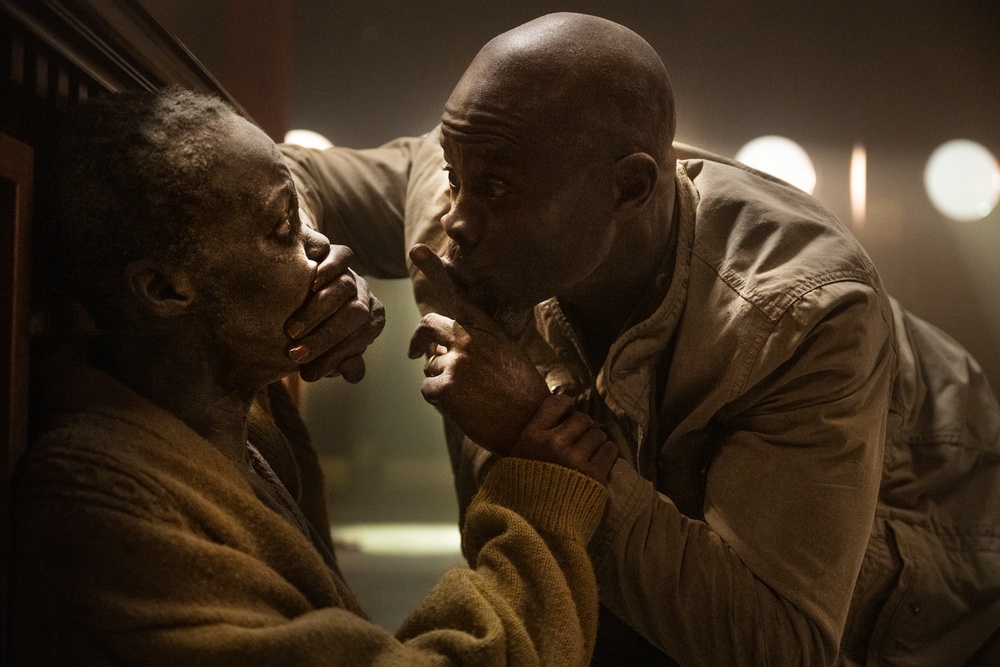A Quiet Place: Day One

Lupita Nyong’o and Djimon Hounsou star in A QUIET PLACE: DAY ONE. (Photo: Paramount)
Although its title suggests a prequel, A Quiet Place: Day One is more of a variation on what the franchise has already done — the same game in a different playground.
Ignoring the traditional expectations of an origin story (which might be a good thing), this slick and stylish follow-up doesn’t offer any insight into how this dystopian world came to be, or providing background about these alien invaders on Earth.
Instead, this effort follows the template of its predecessors by telling a similar story of resilience and survival with a different set of characters in a different setting. For anyone who has seen the first two installments in the series, the result feels more thematically familiar than fresh.
Unlike the previous chapters set further in the future, this one takes place amid the hustle and bustle of New York City, which is anything but quiet. And it’s well before the population was thinned out as depicted in the 2018 original.
It follows Samira (Lupita Nyong’o), a surly terminal cancer patient at a suburban hospice facility who tags along — along with her beloved cat — when her nurse (Alex Wolff) organizes a group field trip to Manhattan.
Then the world changes in an instant, with monsters causing death and destruction. They’re lightning quick and attack based on an acute sense of hearing. You’re safe only if you’re silent. Suddenly, a creaking door or a squeaking wheel resonates like an explosion.
Samira becomes resourceful under such desperate circumstances, even forming a reluctant partnership with a panicking stranger (Joseph Quinn) who becomes physically and emotionally lost in his quest for survival.
For the most part, the screenplay by director Michael Sarnoski (Pig), who takes over from John Krasinski, opts for human melodrama over a barrage of effects-driven set pieces. In the process, the film emphasizes sentiment over suspense, and its bittersweet tug at the heartstrings feels forced.
The extended sequence of the initial attack and its immediate aftermath is vivid and harrowing. Meanwhile, an expressive and understated performance by Nyong’o (Us) generates hard-earned sympathy for an abrasive misanthrope who finds renewed purpose in her life.
However, Day One stumbles in searching for deeper moral complexity or a life-affirming exploration of humanity and collective coping mechanisms during times of mass tragedy. By the next day, it doesn’t have much new to say.
Rated PG-13, 99 minutes.